Sofia Gubaidulina at Miller
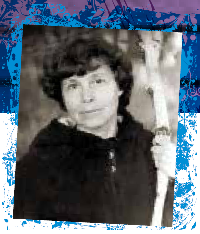
![]()
by Anne Eisenberg
A big snowstorm brought much of New York City to a stop on February 9, but it didn’t deter the booted, scarved crowd drawn to Miller Theatre at Columbia University for the program Composer Portraits that featured the unconventional, powerful music of Sofia Gubaidulina, the 81-year-old Russian composer.
Gubaidulina’s music is known for its combination of the traditional and the avant guard – a striking blend of religious themes and atonality, microtonality and dissonant, episodic structure. This unusual compositional style was shown in all its scope and power in a varied program performed by the International Contemporary Ensemble that included a range of Gubaidulina’s music from Meditation on the Bach Chorale ‘Vor deinen Thron tret’ich hiermit’ for harpsichord and string quartet to Concerto for bassoon and low strings.
Continue reading ‘Sofia Gubaidulina at Miller’
Cool Brittania
Da Capo Chamber Players
Merkin Concert Hall, New York,
October 10, 2011
By Anne Eisenberg
The veteran Da Capo Chamber Players have a knack for programming, and on October 10 at Merkin Concert Hall they showed that flair yet again when they opened their 41st season with “Cool Britannia”– an innovative program featuring contemporary chamber music by composers born in the British Isles.
Continue reading ‘Cool Brittania’
Gods and Robots
Death and the Powers: The Robots’ Opera,
American Repertory Theatre with MIT’s Fast Arts Festival and Chicago
Opera Theater, Cutler Majestic Theatre,
Boston, Massachusetts, 25 March 2011;
and Prometheus Bound,
American Repertory Theater, Oberon,
Cambridge, Massachusetts, 29 March 2011
By Leann Davis Alspaugh
You know you’re in a theatre full of science geeks when the line “What is this Death…is it a form of entropy?” gets a big laugh. Death and the Powers: The Robots’ Opera made its American premiere in March 2011 at Boston’s Cutler Majestic Theatre, a co-production of American Repertory Theater, MIT’s Fast Arts Festival, and Chicago Opera Theater. The production brought together composer Tod Machover, poet laureate Robert Pinsky as librettist, director Diane Paulus, and Gil Rose conducting the Boston Modern Orchestra Project (BMOP). The MIT Media Lab assembled high-tech forces on stage and off, ranging from remote-controlled Operabots and video-infused periaktoi to “sound-producing Hyperinstruments.” A bank of 40 computers and a wireless network ran the software that controlled the robot choreography and coordinated the sound and video environment. Puppeteers were stationed on the catwalk above the stage to assume manual control in case the robots ran amok.
Continue reading ‘Gods and Robots’
20th Century Operas in the 21st Century
by Leonard J. Lehrman
Librettist/director/teacher Stephen Wadsworth had two big debuts in NY this past fall, first at the Met, then at City Opera. At the former, he took over the staging of Mussorgsky’s Boris Godunov when German director Peter Stein refused to subject himself to the indignities US customs imposes on foreign visitors in the name of security. At the latter, his collaboration with the late Leonard Bernstein, A Quiet Place, finally came home, though staged by Christopher Alden. Continue reading ‘20th Century Operas in the 21st Century’
Fantastical Sounds from Near and Far
New Juilliard Ensemble, Joel Sachs Founding Director and Conductor; The Peter Jay Sharp Theater, New York, NY, September 25, 2010
by Barry O’Neal
The pool of fine young musicians at The Juilliard School that Joel Sachs draws upon for his New Juilliard Ensemble is genuinely inspiring. Their first concert of the new season on Saturday night, September 25 drew a large and enthusiastic crowd to a program that included music from three European countries as well the United States. All were worthy and at least two of unusual merit. Continue reading ‘Fantastical Sounds from Near and Far’
Ana Milosavjevic at Le Poisson Rouge
February 16, 2011
By Cornelius Dufallo
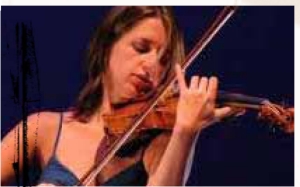
![]() Violinist and composer Ana Milosavjevic presented a program of violin music at Le Poisson Rouge on February 16, in celebration of her new CD, Reflections (Innova Recordings). Ms. Milosavjevic performed five recent compositions, the oldest of which dates from 2006. The small, hip venue was packed with enthusiastic listeners. Continue reading ‘Ana Milosavjevic at Le Poisson Rouge’
Violinist and composer Ana Milosavjevic presented a program of violin music at Le Poisson Rouge on February 16, in celebration of her new CD, Reflections (Innova Recordings). Ms. Milosavjevic performed five recent compositions, the oldest of which dates from 2006. The small, hip venue was packed with enthusiastic listeners. Continue reading ‘Ana Milosavjevic at Le Poisson Rouge’
Cassatt String Quartet, Ursula Oppens
Works by Frank, Fang, Tower, and Brahms;
Symphony Space, May 6, 2011.
by Anne Eisenberg
The stage at Symphony Space, the performing arts center on the Upper West Side of Manhattan, was just as you might have expected it to be on May 6th, just before the evening performance of the Cassatt String Quartet and pianist Ursula Oppens. There was a gleaming ebony grand piano ready for Ms. Oppens, and four seats near it for the quartet. Continue reading ‘Cassatt String Quartet, Ursula Oppens’
The Nose
an opera by Dmitri Shostakovich based on a story by Nikolai Gogol,
directed by William Kentridge,
Metropolitan Opera House, New York, Spring 2010.
by Wendy Lesser
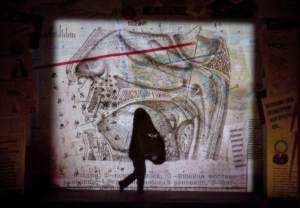
![]() The whole project started with Gogol, out of whose overcoat, according to Dostoyevsky, all other modern Russian literature emerged. He wrote his story “The Nose “ in the mid-1830s, a period when Russia was firmly under Tsarist rule, when wealthy and even moderately comfortable people owned serfs, and when finely drawn class distinctions between the various levels of the civil service and the army dominated metropolitan life. In his Kafkaesque tale, a “Collegiate Assessor of the eighth rank” named Kovalyov, who pretentiously calls himself a Major, wakes up one morning to discover that he is missing his nose. He is distressed, of course, but mainly because of the effect this marked irregularity will have on his social ascent, so he desperately seeks to get his nose back by trying to place an ad for it in the newspapers, complaining heatedly to the police, and engaging in other useless activities.
The whole project started with Gogol, out of whose overcoat, according to Dostoyevsky, all other modern Russian literature emerged. He wrote his story “The Nose “ in the mid-1830s, a period when Russia was firmly under Tsarist rule, when wealthy and even moderately comfortable people owned serfs, and when finely drawn class distinctions between the various levels of the civil service and the army dominated metropolitan life. In his Kafkaesque tale, a “Collegiate Assessor of the eighth rank” named Kovalyov, who pretentiously calls himself a Major, wakes up one morning to discover that he is missing his nose. He is distressed, of course, but mainly because of the effect this marked irregularity will have on his social ascent, so he desperately seeks to get his nose back by trying to place an ad for it in the newspapers, complaining heatedly to the police, and engaging in other useless activities.
Continue reading ‘The Nose’
Fighting the Power and Sounding Good Doing It
by Daniel Felsenfeld
Louis Andriessen: De Staat
Ensemble ACJW, Carnegie Hall, May 10, 2010
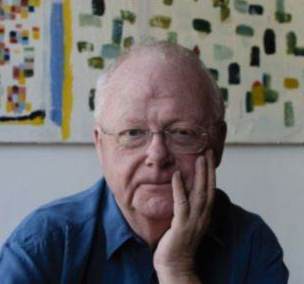
![]() Is there an uglier or more vulgar piece of music than Louis Andriessen’s De Staat? Is there a piece of musical agitprop more relentlessly aestheto-political, more astutely tuned to all that is “wrong” in Plato? Is there a work that says more about itself—and, about music qua music—with such turgid grit, occupying such a relentlessly untamed space. Is there another work written in the last five decades that makes an audience member question their relationship to music? Is there another work in the canon written in the recent past that so clearly says, to all listening: ladies and gentlemen of the Western World, take up your instruments and fight!
Is there an uglier or more vulgar piece of music than Louis Andriessen’s De Staat? Is there a piece of musical agitprop more relentlessly aestheto-political, more astutely tuned to all that is “wrong” in Plato? Is there a work that says more about itself—and, about music qua music—with such turgid grit, occupying such a relentlessly untamed space. Is there another work written in the last five decades that makes an audience member question their relationship to music? Is there another work in the canon written in the recent past that so clearly says, to all listening: ladies and gentlemen of the Western World, take up your instruments and fight!
Continue reading ‘Fighting the Power and Sounding Good Doing It’
Pauline Oliveros Receives the Schuman Prize
by Nancy Garniez
All the vibes were good for the celebration of Pauline Oliveros’ life and works on the occasion of her receiving the William Schuman prize of Columbia University’s School of the Arts at the Miller Theatre, Saturday March 27, 2010. There could not be a more fitting recipient of a prize named for a composer who felt that the humanity of music and the musician were endangered by the closed door approach to much of the training and practice of music in America.
Continue reading ‘Pauline Oliveros Receives the Schuman Prize’
Orfeo in Idaho
By Barry O’Neal
The New York Virtuoso Singers, Harold Rosenbaum, conductor: Two Modern Settings of Orpheus and Eurydice with Richard Stoltzman, clarinet, the Artemis Chamber Ensemble, David Arnold, baritone, Wendy Baker, soprano and Nathan, Bahny, narrator; Peter Norton Symphony Space, February 13, 2010
Continue reading ‘Orfeo in Idaho’
Adventures in Words and Music
by Leonard Lehrman
What is music? Music by itself cannot answer. But the question is not addressed to music. Indeed music cannot listen. We who listen can answer; we must, we do answer, by words–and by our various ways of combining words and music. Unlike the birds and crickets who make in every generation the wordless music encoded in their genes, we are responsible for music, for the meaning of music, and for the constant renewal of meaningful music. Endowed with freedom to explore all sound, we make some sound into words and music. When we are lucky, we make some music out of our words, out of our freedom, out of our very perplexities….
These words by the musicologist William Austin, concluding an essay opening a volume on “Words and Music,” published in 1971 by Harvard in honor of the popular music appreciation professor G. Wallace Woodworth, are worth pondering, as we search for meaning, and responsibility, in music. Continue reading ‘Adventures in Words and Music’
Orchestral Underground: conversations
by Anne Eisenberg
Roger Zare, Time Lapse; Sebastian Currier, Next Atlantis; Paquito D’Rivera, Conversations with Cachao; Anne Manson, conductor; Zankel Hall, January 29, 2010
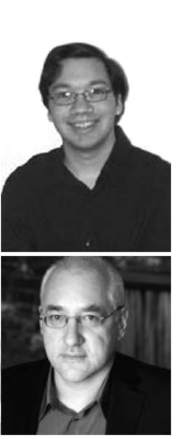
![]() The young American composer Roger Zare was inspired by photography when he wrote Time Lapse, an inventive and lovely orchestral piece that had its world premiere on January 29 at Zankel Hall in a concert of the American Composers Orchestra.
The young American composer Roger Zare was inspired by photography when he wrote Time Lapse, an inventive and lovely orchestral piece that had its world premiere on January 29 at Zankel Hall in a concert of the American Composers Orchestra.
Zare seeks to create a musical counterpart to time-lapse photography, where weeks-long processes like plants growing and budding are speeded up and shown in seconds. He is also interested in the opposite technique: high-speed photography, when the path of, for instance, a speeding bullet is slowed down and made visible in a series of exposures.
Zare’s piece (an ACO/Underwood commission) is a musical version of these visual expansions and contractions, but it’s heard instead of seen in vibrant, unusual music ingeniously orchestrated for strings, winds, brass and percussion to play with our sense of time.
Continue reading ‘Orchestral Underground: conversations’
Robert and Hal, Opera by Richard Brooks
by Eugene W. McBride © 2009
Richard Brooks: Robert And Hal, Opera in Three Acts, Golden Fleece Ltd., Lou Rodgers, producing artistic director, Thomas Carlo Bo, music director. Sanford Meisner Theatre, New York, NY, June 2008 Continue reading ‘Robert and Hal, Opera by Richard Brooks’
Dotted Notes…
[This is only one excerpt from the complete Dotted Notes found in our magazine.]
From Leonard Lehrman:
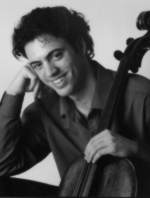
![]() The New York premiere Feb. 23, 2008 of Dark Heaven Angel by Garth Edwin Sunderland, Music Editor of the Leonard Bernstein Office and Artistic Director of the Lost Dog New Music Ensemble, was performed by solo cellist Eric Jacobsen, occasionally using two bows, and inadvertently assisted by car horns from outside Judson Memorial Church. The major work presented by said Ensemble also featured Mr. Jacobsen, and five players, conducted by Silas Huff, with solo dancer Dora Arreola, in Peter Maxwell Davies’s “Vesalii Icones,” a sensitive 14-part instrumental passion narrative from Gethsemane to the Resurrection, as inspired by 16th century drawings, De Humani Corporis Fabrica by Andreas Vesalius. Continue reading ‘Dotted Notes…’
The New York premiere Feb. 23, 2008 of Dark Heaven Angel by Garth Edwin Sunderland, Music Editor of the Leonard Bernstein Office and Artistic Director of the Lost Dog New Music Ensemble, was performed by solo cellist Eric Jacobsen, occasionally using two bows, and inadvertently assisted by car horns from outside Judson Memorial Church. The major work presented by said Ensemble also featured Mr. Jacobsen, and five players, conducted by Silas Huff, with solo dancer Dora Arreola, in Peter Maxwell Davies’s “Vesalii Icones,” a sensitive 14-part instrumental passion narrative from Gethsemane to the Resurrection, as inspired by 16th century drawings, De Humani Corporis Fabrica by Andreas Vesalius. Continue reading ‘Dotted Notes…’
The 8th “Europe-Asia” Contemporary Music Festival in Kazan. Part 2
Reviewed by Anton Rovner
The Eighth International Contemporary Music Festival “Europe-Asia” took place October 19-21, 2007 in Kazan, in the Republic of Tatarstan, in the western Russian Federation. Continue reading ‘The 8th “Europe-Asia” Contemporary Music Festival in Kazan. Part 2′
The 8th “Europe-Asia” Contemporary Music Festival in Kazan
Reviewed by Anton Rovner
The Eighth International Contemporary Music Festival “Europe-Asia” took place October 19-21, 2007 in Kazan, in the Republic of Tatarstan, in the western Russian Federation. This festival has been held in Kazan approximately every other year since 1993, attracting numerous outstanding musicians, composers and performers from Kazan and other cities in Russia and other countries–in Europe, Asia and America.
Part 1 of 2. Continue reading ‘The 8th “Europe-Asia” Contemporary Music Festival in Kazan’
Critic-at-Large: New Life for Old Subjects
by Leonard Lehrman ©2008
It’s an old truism that if you want to bring something new to an audience, you’ve a leg up if you start with something at least partially familiar, whether it’s a classic poem, a play, or historical figure. Most of the items seen in New York this season fall into that category.
Continue reading ‘Critic-at-Large: New Life for Old Subjects’
The 2008 ACA Festival
by B.L.C.
The 2008 ACA Festival, once again held in New York, ran from Wednesday, June 4th through Saturday, June 7th. Continue reading ‘The 2008 ACA Festival’
Meet Noizepunk and Das Krooner
by BLC ©2008
When you tune into this online music station, you first hear the lovely strains of Vivaldi’s “Summer” from his Four Seasons. Ah, they don’t write music like that anymore, is your first reaction, until seconds later the sudden burst of Dolby bass jolts you back to reality. It is 2008, so fear not. This is followed by the greetings of two characters who serve as the show’s hoax—er, uh, I mean hosts.
Continue reading ‘Meet Noizepunk and Das Krooner’